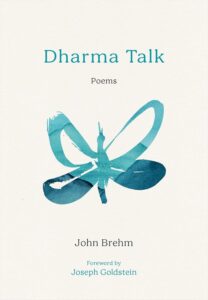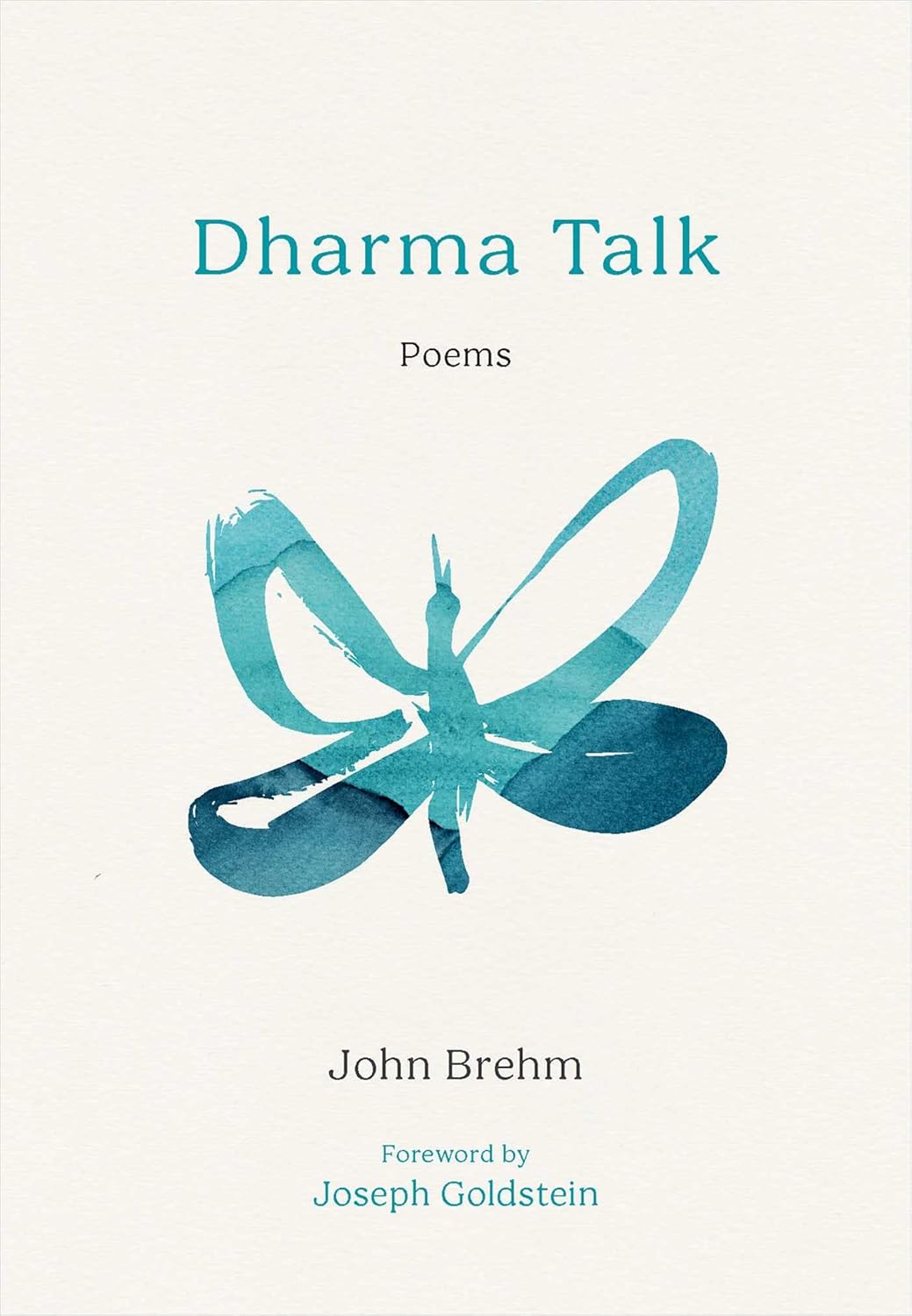Walking wisdom
Pocket-sized dharma for the never-ending path
Pocket-sized dharma for the never-ending path
One doesn’t expect to laugh much reading poems in a book called Dharma Talk: Poems. Nevertheless, in “Metta,”a poem named after the Buddhist concept of loving all beings, poet John Brehm writes about the principle of “lovingkindness” as one word and going around in the world intentionally wishing for others to be well, safe and happy. He also acknowledges the parallel existence of his own biting snarkiness. Along with his warm-hearted desires for others, he adds “… and maybe also lose the frowning-into-the-phone facial expression I get so tired of seeing everywhere I go.” And, for someone else, “…and while you’re at it, how about some nicer clothes?”

John Brehm
Brehm’s acknowledgment of his excessive criticality, rather than making him seem hypocritical, reveals him as actively and messily grappling with his spiritual quest. Rather than simply manifesting good will toward others, he embraces his own negative assessment of others’ physical and behavioral comportment. Sure, the fact that he sees others dressing badly and unconsciously spreading rotten vibes around gives him a chance to pat himself on the back for not doing the same. But, more pointedly, he recognizes that the very act of hoping for wellness, safeness and happiness for others is itself an actually disparaging thing to do. Such well-wishing inadvertently comes with judgmental fangs.
Fighting with his own nature and mind, in fact, are primary aspects of the dharma of the book’s title: a Sanskrit word for the inherent and eternal nature of reality developed in the teachings of Buddhism. “Wanting Not Wanting,” a poem of short, quick lines that function both sculpturally and aurally, addresses the predicament of eliminating desirousness. “I wish I didn’t / want things / to be other / than they are / but wanting / to be some- / one who / doesn’t want / things to be / other than / they are is / just another / way of wanting / things to be / other than / they are— / and I don’t / want that.” The poem itself establishes an ouroboros: the snake eating its tail, a symbol of eternity and rebirth. Which in the Buddhist tradition happens repeatedly, repeatedly, repeatedly, eventually and hopefully culminating in enlightenment. Which by its nature cannot transpire without multiple foils, foibles and trips around the block.
Aware of this, Brehm writes in “Non-harming” of his practice of shooting pigeons with a BB gun to get them to stop pooping on his house, making what he describes as “a bad Jackson Pollock painting.” He imagines a neighbor observing him: “‘Honey, come look at this. Isn’t that / the mindfulness guy out there with a rifle / shooting at his own house?’ I’m well aware  / of the irony, but life’s like that, isn’t it?” Solidly acquainted with this obvious contradiction, Brehem contemplates shooting himself in the foot to experience the pain he’s inflicting on birds firsthand. And then he wisely decides not to do that.
/ of the irony, but life’s like that, isn’t it?” Solidly acquainted with this obvious contradiction, Brehem contemplates shooting himself in the foot to experience the pain he’s inflicting on birds firsthand. And then he wisely decides not to do that.
One of the most memorable poems included in Dharma Talk involves Brehm regretting the way he and the rest of his classmates treated a funny-looking boy named Dudley Ball in second grade. Rather than feeling concern and wondering what might be wrong with Dudley Ball (yellow skin being very real indicators of jaundice and liver disease), the kids recognized what Brehm describes as “laughable ugliness.” Going on with what he now as an established adult remembers vividly, Brehm writes, “But why do I see his face so clearly now, / the fear and the loneliness in his eyes? / The faces of all the others I’ve forgotten. / I was outraged at the injustice of it, / the cruelty of the schoolyard taunts. / I told the teacher but can’t recall / if she did anything about it. / And then he stopped coming to school. / A few months later, we learned he had died. / I wish now I’d said a kind word / to him, tried harder to protect him.”
The matter of this jutting out from the jumble of indecipherable grade-school this and that resonates poignantly. For Brehm himself of course, and through his writing, for all of us. Dudley Ball’s name wasn’t, as his classmates took it, an open invitation to repeatedly call him a dud and pelt him viciously with balls just for fun. That nagging little feeling that something could have been done differently and better endures, with that knowledge hopefully leading to a better outcome given another chance. Ergo, Dharma.
Published beautifully as a palm-sized book, Dharma Talk will fit nicely in your pocket to be read any time you’re out and about on your own path and in the mood to contemplate its nature. John Brehm, who lives now in Portland, Oregon, came to Colorado in 2008 from Brooklyn, New York, and has taught reading-as-a-writer classes focusing on individual poets at Lighthouse Writers Workshop for a good while, following his path as poet and teacher.
Click here for more from Sarah Valdez.

